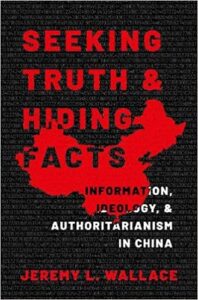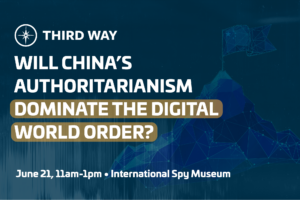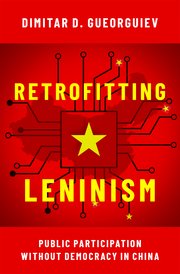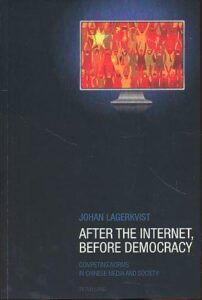 In the early 1980s China’s admission that it was still only in the “initial stage of socialism” was an ideological bombshell, The Economist observes. It allowed China to introduce capitalism (a stage Marx viewed as essential) and repudiate Maoist madness. Many Chinese were delighted by the weakening of ideology’s grip on decision-making. China’s dramatic economic growth owes much to the license it gave.
In the early 1980s China’s admission that it was still only in the “initial stage of socialism” was an ideological bombshell, The Economist observes. It allowed China to introduce capitalism (a stage Marx viewed as essential) and repudiate Maoist madness. Many Chinese were delighted by the weakening of ideology’s grip on decision-making. China’s dramatic economic growth owes much to the license it gave.
But some Chinese have not given up on a transition to Communism, it adds.
Despite being China’s ruling ideology, Marxism has for decades been an obscure major for students. But it is enjoying a revival under President Xi Jinping, who has urged Chinese Communist party cadres to “remember the original mission” as he prepares to begin an unprecedented third term in power this year, The FT reports:
Xi, however, has made it clear that he intends to preside over an ideologically stricter “new era” that will prioritise “common prosperity”, tighter regulation of private sector conglomerates and a less stark rich-poor divide in what is one of the world’s most unequal societies. Xi’s government has cracked down on young people who apply Marxist analysis too critically to abuses of labour allowed under China’s system of state capitalism. But it has boosted demand for Marxism teachers, who now play a critical role in educating the public about why China’s communist regime is superior to the west.
 “The purpose …. is to train thought police to brainwash the entire population,” said Ming Xia, a political-science professor at the City University of New York.
“The purpose …. is to train thought police to brainwash the entire population,” said Ming Xia, a political-science professor at the City University of New York.
Virtual Personal Networks (VPNs) are becoming increasingly important in China, which has grown more inward-looking since the start of the covid-19 pandemic. Xi Jinping has deployed an army of censors and the latest technology to combat foreign influence, The Economist adds:
Still, the government could clamp down harder if it wanted to. Those caught using VPNs tend to receive a slap on the wrist. The state seems able to throttle the networks. ….China, though, must also stay connected to the world. Without VPNs international firms could not operate in China. Foreigners would be less likely to come for work or study. Local firms would struggle, too. Chinese scientists need VPNs to do research. ….
Others see a more sinister motive. “Perhaps the authorities do not completely crack down on the use of VPNs because it helps them to identify those who are ‘picking quarrels’,” says a co-founder of GreatFire, a Chinese censorship watchdog.
Seeking Truth and Hiding Facts: Information, Ideology, and Authoritarianism in China (above), a forthcoming book from Jeremy Wallace, explains how Xi’s neo-political turn – aggressive anti-corruption campaigns, reassertion of party authority, and personalization of power- is an attempt fix the problems of the prior system, as well as a hedge against an inability to do so. While dictators stay in power through coercion and cooptation, they also do so by convincing their populations and themselves of their right to rule, he contends.
 A further manifestation of the regime’s ideological offensive is evident in its specious claims of democratic legitimacy.
A further manifestation of the regime’s ideological offensive is evident in its specious claims of democratic legitimacy.
Xi’s definition of “whole-process democracy” isn’t completely clear, notes one observer, although he has described it as a form of government in which “all major legislative decisions are made in accordance with procedures, through democratic deliberation, and through scientific and democratic decision-making.”
Xi offers his “China Model” as an alternative to neo-liberalism in a new world order, backed up by the architect of Xi’s China Model ideology – Wang Huning, a discrete member of the current Standing Committee of the CCP Central Committee, adds Sean Golden, Senior Associate Researcher at CIDOB, the Barcelona-based think-tank. In a period when liberal democratic political systems have been riven by radical polarization, lack of a broad consensus, hostile party politics and rampant inequality, China offers its version of an efficient technocratic “benevolent authoritarianism” as an alternative.
“If the people are awakened only to cast a vote but become dormant afterward, that is no true democracy,” China’s Chargé d’Affaires in Australia wrote. “If the people are offered great hopes during electoral campaigning but have no say afterward, that is no true democracy.”
In reality, as Freedom House observes, China’s leaders are not subject to direct or competitive elections.
 Arguably, with the forces of social and media globalization impacting heavily on China – increased travel; an elite youth often educated abroad; and foreign-produced TV programming and popular culture, to name just a few – the battle against the myriad interconnecting cultural influences found on China’s online networks is becoming increasingly difficult to wage over time, argues Johan Lagerkvist, author of After the Internet, Before Democracy: Competing Norms in Chinese Media and Society:
Arguably, with the forces of social and media globalization impacting heavily on China – increased travel; an elite youth often educated abroad; and foreign-produced TV programming and popular culture, to name just a few – the battle against the myriad interconnecting cultural influences found on China’s online networks is becoming increasingly difficult to wage over time, argues Johan Lagerkvist, author of After the Internet, Before Democracy: Competing Norms in Chinese Media and Society:
Thus, there is reason to doubt that the Party-state’s policies of cultural protection and containment of “pollution” of the cultural environment will hold tight as further normative changes continue in society as a result of this development. Nonetheless, at the time of writing, the strongest determining factors for molding norms and legal legitimacy vis-à-vis the existing Internet control regime are domestic ones.
Globalization and the international media do play a certain role for generating political change, adds Lagerkvist, but this is subordinate to domestic tug-of-war between the Party-state and society in China.
Big-data analytics, AI, and the Internet of Things are making the differences between the Chinese Communist Party and Big Brother harder and harder to spot. Read @rockngo @CDT on the CCP tech dystopia. https://t.co/TJQ9SUNTkG
— Journal of Democracy (@JoDemocracy) June 30, 2022







